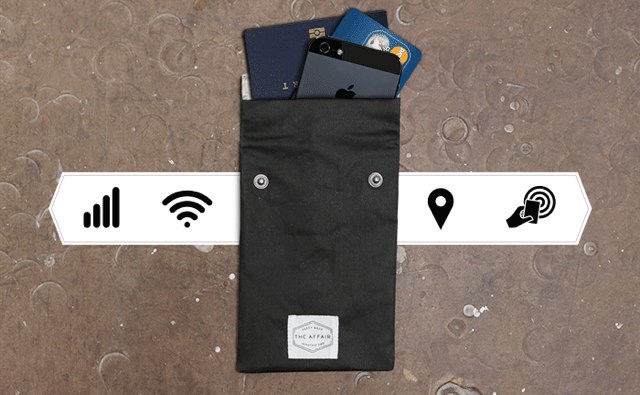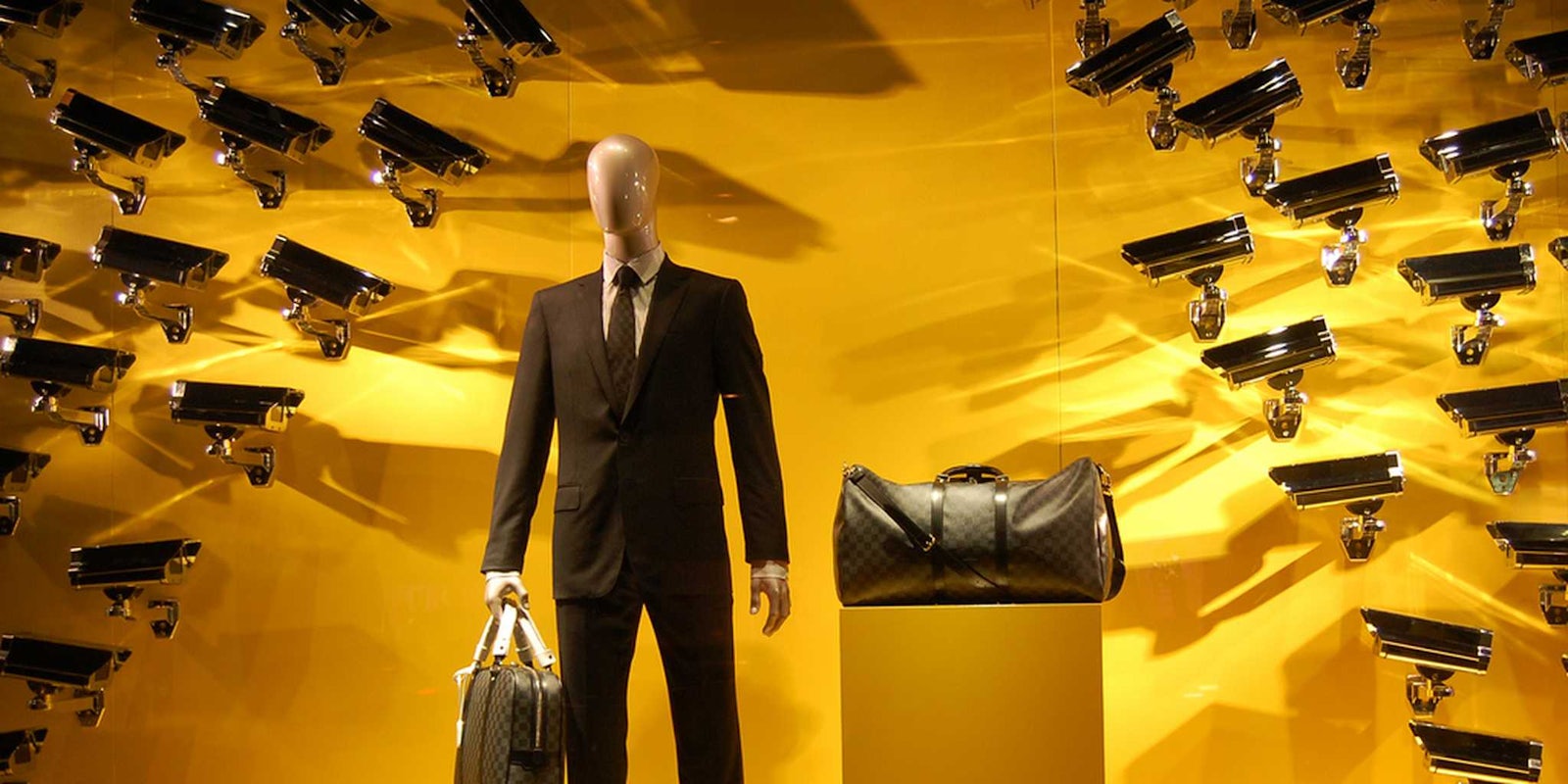In a world where your private photos are accessible by just about anyone and your privacy may already be dead, wouldn’t it be great if removing yourself from the digital map were as easy as tossing your phone into a little canvas bag? That’s the promise of 1984, a Kickstarter campaign to create a line of Orwellian clothing complete with a pocket that wipes you and your smartphone off the digital radar.
Called UnPocket, the small canvas bag that serves as the basis for the clothing line promises to block Wi-Fi, Bluetooth, GPS, and RFID from whatever you place inside. The idea is that tossing your cell phone and other precious personal items inside will keep them safe from prying digital fingers and allow you to disappear.
The UnPocket is available as part of a variety of clothing items as well as a standalone accessory, and the Kickstarter campaign is roughly 80 percent to its goal with 20 days remaining. The problem is that it’s all kind of silly, and the purported benefits of carrying around a pocket that eliminates wireless signals aren’t really as remarkable as they might sound—and in reality, there are ways to “digitally disappear.” This might not be one of them.

As the name suggests, the 1984 project is very much about eliminating the governments ability to track you. “Big brother is real,” the Kickstarter video warns, before showing that you can make all your troubles disappear by tossing your smartphone, credit cards, and e-passport into the secure UnPocket bag. Let’s tackle these personal items one at a time.
Credit cards: Basic plastic cards with magnetic strips are no safer in this signal-secure bag than they are in a wallet or purse. Cards with an EMV chip embedded on them, while more futuristic looking, are no more capable of broadcasting your personal information to “Big Brother” than a $100 bill is. If you’re worried that the government is keeping an eye on your credit card purchases, however, that’s something that not only can’t be solved by the UnPocket, but also won’t be accomplished by anything short of cutting up your credit card and never using it again.
Passports: A plain old paper passport is obviously not capable of being snooped by anything other than direct line-of-sight, and believe it or not, e-passports are considered to be just as safe. Passports with a chip embedded are created specifically to prevent unauthorized attempts to skim your personal data, so that’s not something you need to worry about. But maybe there’s a more important question you need to ask yourself: Why are you worried about the government knowing about the data stored on your government-issued passport anyway? Chances are, if you’re equipped with one of these, the government already knows plenty about you, and that fancy bag isn’t going to change anything.
Mobile phones: This is really the primary target of the entire 1984 project, and it’s also the only usage scenario that even makes the slightest bit of sense. By tossing your phone in the secure UnPocket you are effectively cutting it off from the various networks that can be used to pinpoint its location—and thereby yours. Cool, huh? You must feel like a regular Edward Snowden! Not so fast.
If you frequently find yourself in the position of wanting to disappear from the digital radar for short periods of time, there’s another feature built right into your phone that will allow you to do it: the off button. Of course, you won’t be able to receive calls while your phone is off, but the same is true for the time it spends in the UnPocket. [Update: There is a small chance that if you’re working with an “infected” phone, you can be tracked while it’s off… but only the NSA has this capability at the moment, and it’s likely very uncommon. Especially for the average users. Again… you’re not Edward Snowden.]
Ask yourself this: If you’re serious about going “off the radar,” as the UnPocket manufacturers suggest you can with their little canvas sack, is tossing the phone that’s connected to service from a subscription-based wireless company—which knows more information about you than your doctor likely does—into a signal-secure bag really the answer?
No, it’s not.
But there are ways to actually go dark. If you’re serious about being able to communicate on-the-go without anyone in your digital sphere knowing who you are, there’s a way to do that, and it doesn’t involved a magic bag.
- First, don’t worry about ridiculous things like the chip in your credit card or passport, as those things aren’t giving you away to anyone, especially the government.
- Only deal in cash or gift cards. If you have to make purchases in public, do it using currency that doesn’t have your name on it. Credit cards are a no-no.
- Ditch your wireless company. If you’re serious about fading away while on the move, a subscription service isn’t what you’re looking for. Buy a pre-paid phone from a gas station or department store and recharge it using cards bought with cash.
- Now you can both make and receive calls and texts—something you can’t do while your phone is in the UnPocket—and your identity will remain a mystery to anyone who would find a reason to snoop.
Now please, don’t be fooled into thinking that something as simple as eliminating the wireless signals from your current phone, credit cards, and passports is doing anything but making Big Brother laugh. You’re not a secret agent, and unless you’re willing to take the steps needed to actually carry on anonymous communications, don’t let a fabric bag trick you into thinking you are.
Photos via Ludovic Bertron (top)/Flickr (CC 2.0) & Kickstarter


